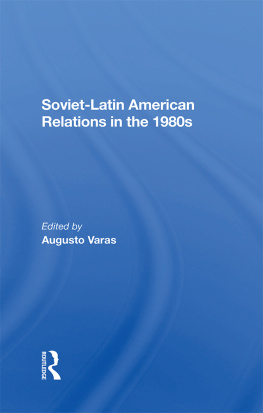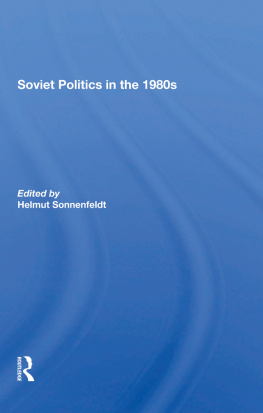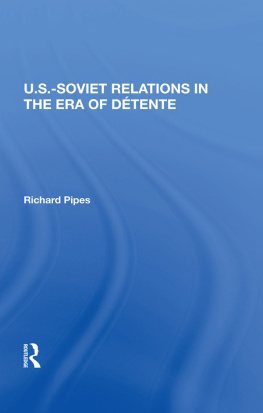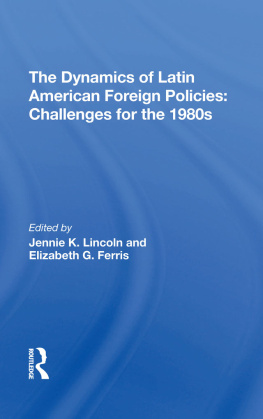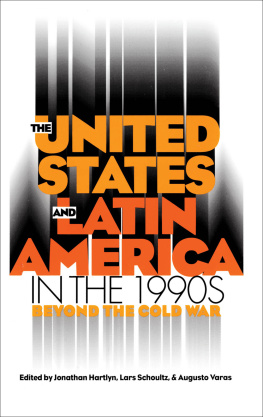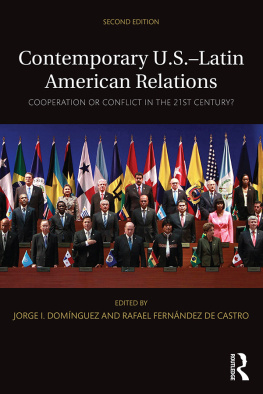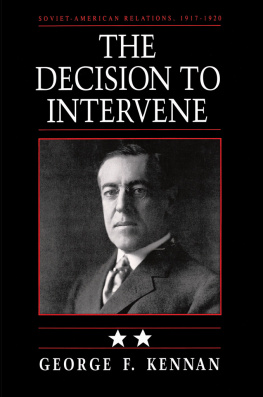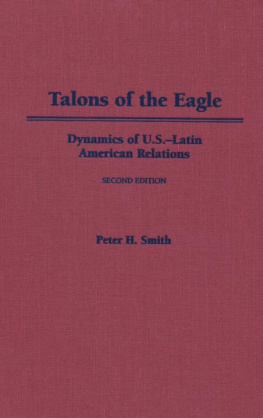Soviet-Latin American Relations in the 1980s
About the Book and Editor
Soviet involvement in Latin America has been defined by U.S. policymakers as disruptive of the regional political and security order, and U.S. policy has been formulated to prevent the escalation of Soviet presence in the region. In this volume, Latin American scholars provide case studies of the economic, political, and military influence of the Soviets in Latin America, analyzing the dynamics of relations with the Soviet Union from a historical perspective. They focus on bilateral relations between the USSR and Mexico, Costa Rica, Brazil, Peru, Nicaragua, Argentina, and Cuba, examining how regional actors perceive Soviet interests and vice versa. In addition, they provide a broad overview of Soviet-Latin American relations, particularly in light of U.S. regional hegemony. In analyzing the extent to which Soviet-Latin American relations have had an impact on regional stability, the authors offer evidence that involvement in Latin America has a relatively low priority for the USSR in general and argue that the primary interest of the Soviet Union in the region is to compete with the United States without fostering military conflict.
Augusto Varas is a political sociologist and international relations analyst at the Facultad Latinoamericana de Ciencias Sociales in Santiago, Chile. He is the author of Militarization and the International Arms Race in Latin America (Westview, 1985).
SovietLatin American Relations in the 1980s
edited by Augusto Varas
First published 1987 by Westview Press, Inc.
Published 2019 by Routledge
52 Vanderbilt Avenue, New York, NY 10017
2 Park Square, Milton Park, Abingdon, Oxon OX14 4RN
Routledge is an imprint of the Taylor & Francis Group, an informa business
Copyright 1987 Taylor & Francis
All rights reserved. No part of this book may be reprinted or reproduced or utilised in any form or by any electronic, mechanical, or other means, now known or hereafter invented, including photocopying and recording, or in any information storage or retrieval system, without permission in writing from the publishers.
Notice:
Product or corporate names may be trademarks or registered trademarks, and are used only for identification and explanation without intent to infringe.
Library of Congress Cataloging-in-Publication Data
Soviet-Latin American relations in the 1980s.
(Westview special studies on Latin America and the
Caribbean)
1. Latin AmericaRelationsSoviet Union. 2. Soviet
UnionRelationsLatin America. 3. Latin America
Foreign relations1948 . 4. Soviet Union
Foreign relations1975 . I. Varas, Augusto.
II. Series.
F1416.S65S68 1987 327.47'08 86-9095
ISBN 13: 978-0-367-28845-7 (hbk)
Contents
, Augusto Varas
, Augusto Varas
, Edm Dominguez Reyes
, Fernando Lpez-Alves
, Boris Yopo H.
, Jos Miguel Insulza
, Rubn Berros
, Aldo C. Vacs
, Humberto Garza Elizondo
, Rubn Berros
, Isabel Turrent
, Francisco Rojas Aravena
Guide
This volume is the result of one important part of a long-term research project on Latin American-Soviet relations sponsored by the Ford Foundation and carried out at the Latin American Faculty of Social Sciences (FLACSO) in Santiago, Chile, with the collaboration of a small but extremely professional regional network of scholars dedicated to this theme.
The research was also made possible by the Woodrow Wilson International Center for Scholars in Washington, D.C. During 1983-1984 I was one of its fellows, carrying out research on Soviet-Latin American relations. In that period an extraordinary group of international scholars nurtured my work and participated in the introductory and final presentations of my research theme.
I would especially like to thank Louis Goodman, acting secretary of the Wilson Center's Latin American Program, for his kindness in sharing the burden of organizing an international seminar on this topic in Washington in March 1985.
The essays published in this volume that were presented on that occasion were commented on by a selected group of U.S. experts. I would like to thank Cole Blasier, Louis Goodman, Ronald Hellman, Richard Nuccio, Morris Rothenberg, Nina Serafino, and Wayne Smith for their invaluable suggestions and criticisms. The Washington seminar was also made possible by the active participation of Enrique Hermosilla, who coordinated all the practical arrangements long distance. The secretarial assistance of Harriet Lora was a consistent and permanent source of support.
To all of them my deepest appreciation for this successful experiment in international collaboration.
Augusto Varas
Augusto Varas
In the past decade Latin American-Soviet relations have been a highly controversial issue in the United States. The increasing concern of policymakers and the public about these linkages is due to the perception that the Soviet Union's presence in the hemisphere poses a potential military danger. This threat was emphasized in 1984 by the National Bipartisan Commission's report on Central America. The same concern has been shared for many years by several Latin American political groups. In the latters' case, their fears are intertwined with their resistance to pressures for local political changes. Thus, in Latin American foreign relations and domestic political contexts, the presence of the Soviet Unionand of local Communist partieshas been defined as one of the main sources of hemispheric instability. The consequence of this approach has been the use of military force to cope with conflicting regional issues. Hemispheric and domestic relations have been seriously damaged by the frequent intercession of the military. The Monroe Doctrine, the cold war syndrome and containment policy, and the Latin American national security doctrines are types of policies that use force against extracontinental influences or local dissidence. The effect of these policies on multilateral relations has been devastating. The lack of credibility of intergovernmental forums like the Organization of American States or the Inter-American Reciprocal Assistance Treaty, as well as the legitimacy crisis of local democratic systems, have been most salient outcomes of the armed containment policy.
The notion of a Soviet threat coming from Latin American countries is not new in the United States. It is the result of a deeply rooted insecurity feeling that can be traced back to the pre-World War II period and that continued through the cold war years. To compare the latter period with the current one could be a useful procedure to draw some conclusions for the future shape of hemispheric relations.
Latin American Detachment
During the World War II period Latin American countries were not clear and reliable U.S. allies, with the exception of the Brazilian and Colombian governments. This was particularly critical at the time of confrontation with the Axis countries. Reasons for Latin American countries' detachment were different in each case, but in general, it could be said that the attitude was a consequence of the relatively widespread ideologicalrather than political or economicsupport and sympathies that the Nazi and fascist movements received in the region.


